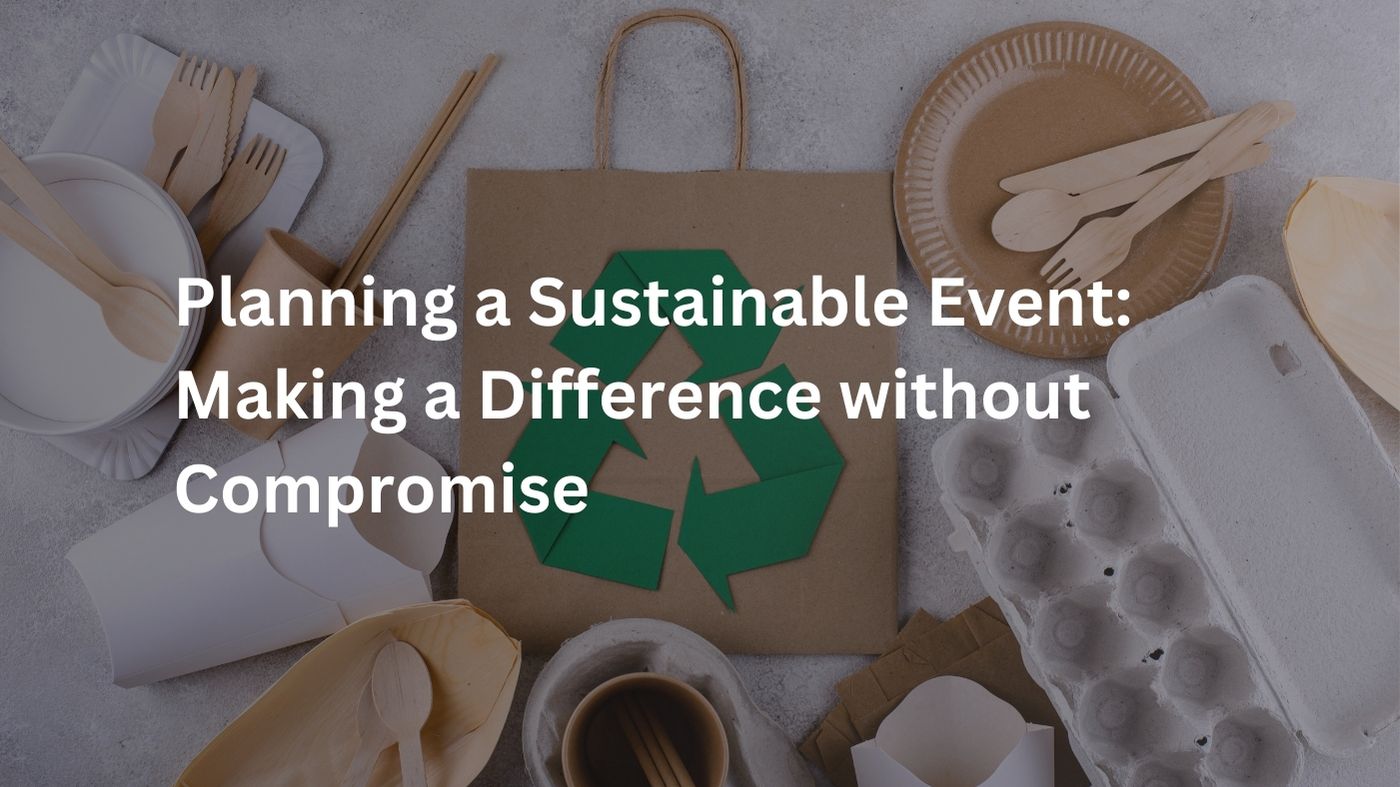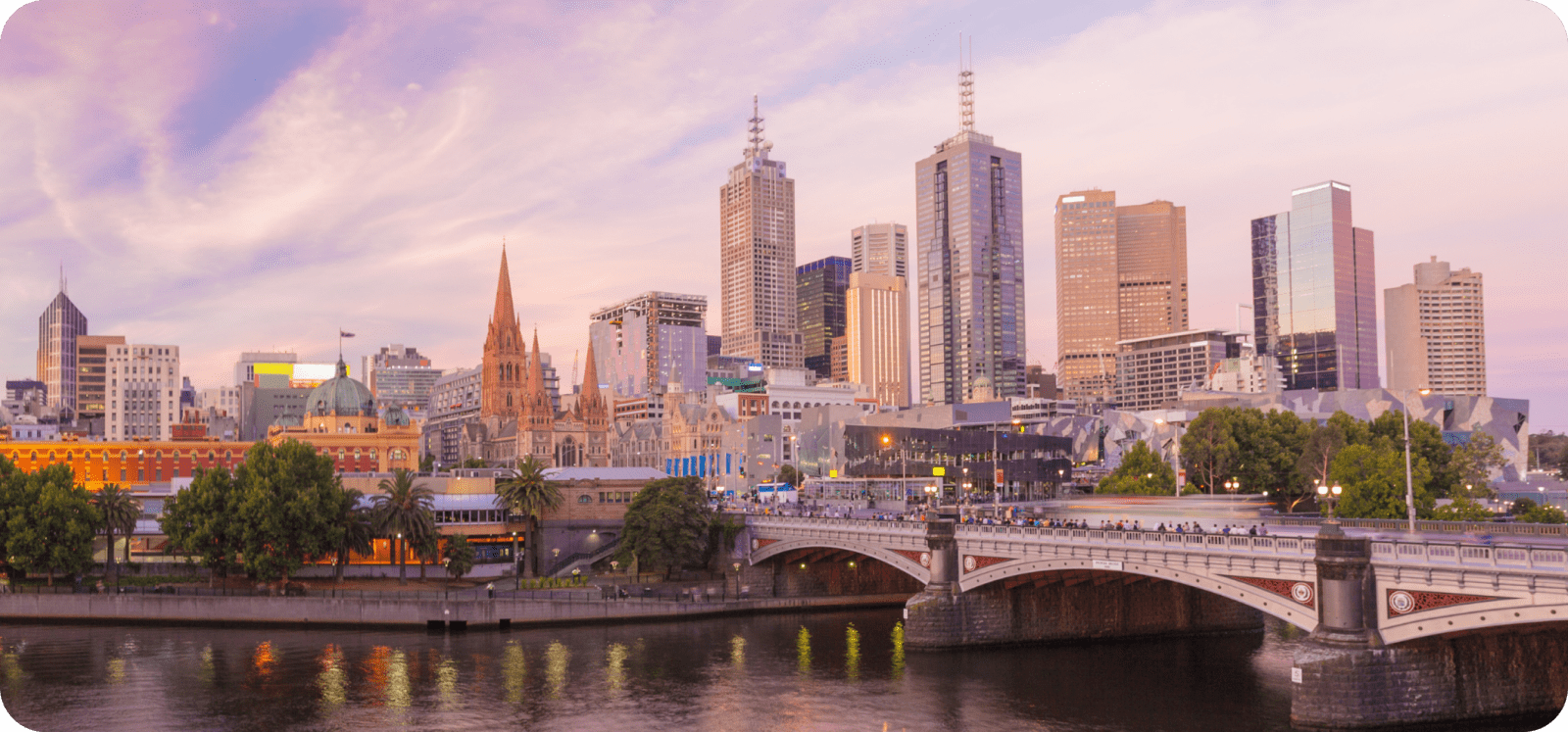
Why plan a sustainable event?
In the ever-evolving world of event planning, sustainability poses a crucial challenge: how can we organise events that are both environmentally friendly and budget-conscious without compromising on quality?
The great news is that sustainable event management is not only attainable but highly impactful, regardless of the event’s size. By adopting sustainable practices, we unlock the potential to reduce waste, conserve resources, and promote social responsibility.
This not only aligns with the growing demands of customers and the expectations of investors but also prepares us for an inevitable future where reporting on sustainability becomes compulsory.
At On Purpose Events, we understand the importance of taking a holistic approach to achieve sustainability. It’s not just about minimising environmental impact; it’s also about considering the social and economic aspects throughout the entire planning process.
Our mission is to create impactful events that benefit not only attendees but also businesses, associations, governments, and the planet.
Whether you’re just starting your sustainability journey or aiming to organise carbon-neutral events, we’re here to guide you every step of the way.
So, where to start?
To plan a truly sustainable event, it’s important to start with a solid foundation.
This involves creating a comprehensive sustainability policy that will serve as a guiding framework for your event’s waste management, energy consumption, water conservation, and procurement practices.
By aligning your sustainability goals with the overall objectives of your event, you can ensure that they are well-defined, measurable, and time-bound.
This clarity will foster greater engagement and commitment from both your clients, attendees and sponsors, driving the success of your sustainability initiatives.
Organisations with a sustainability policy in place are 2.5 times more likely to implement sustainable practices. That’s a big impact!
Suppliers: Don’t Go it Alone
Source vendors who offer environmentally friendly and socially responsible products and services. Seek out certifications such as LEED, Green Star or ISO 20121 to ensure that suppliers are committed to sustainable practices.
Working with such suppliers not only aligns with your event’s sustainability goals but also sends a strong message to your audience and stakeholders about your dedication to responsible sourcing and sustainable practices.
- Promote recycling, composting, and the use of reusable or biodegradable products.
- Embrace digital communication and go paperless to reduce excessive paper waste.
- Encourage attendees to bring reusable water bottles and set up convenient water refill stations to eliminate the need for single-use plastic bottles.
- Opt for reusable or compostable alternatives for food and beverage options, avoiding single-use plastics.
- Establish a sustainable alliance with locally sourced, seasonal, and organic food options.
- Careful planning can help minimise food waste through donation or
composting.
Food waste accounts for 8% of global greenhouse gas emissions. By minimising food waste, you can significantly reduce your event’s environmental footprint – World Wide Fund (WWF)
Byron Bluesfest serves as an inspiring example of eco-friendliness, having received six international A Greener Festival Awards since 2007. They prioritise waste management and recycling by sending organic waste to local farmers, recycling leftover cooking oils, and converting landfill waste into Methane gas for energy production.
Additionally, they actively protect wildlife by educating festival-goers, creating a koala corridor through tree planting, and supporting programs for disease-free koala populations.
Water: Making Every Drop Count
Water conservation is a critical aspect of hosting a sustainable event. By implementing various measures and encouraging active participation, every drop of water can be utilised responsibly.
- Install low-flow faucets, toilets, and urinals to reduce water consumption in
restrooms and other water-related facilities. - Offer water stations with refillable containers or water fountains equipped with
bottle-filling features. - If your event involves outdoor spaces or green areas, ensure that irrigation systems are properly maintained and adjusted to prevent water wastage. Consider using smart irrigation technology that adjusts watering schedules based on weather conditions and plant needs.
- Implement greywater systems that collect and treat non-potable water from sinks and showers for reuse in non-drinking water applications, such as landscape irrigation or toilet flushing.
Transport: On the Road to Sustainability
By implementing sustainable event transport solutions, you can reduce carbon emissions associated with your event by up to 40%, as found by a study from BCD Meetings & Events. Let’s go green on the go!
- Encourage attendees to choose efficient modes of transportation like public transit,carpooling, or cycling.
- Provide clear information on public transportation options, organise shuttle services, and offer incentives for eco-friendly choices, such as discounted parking for carpoolers.
Sydney Festival serves as an exemplar of green practices. To minimise greenhouse gas emissions,
they actively encourage sustainable transportation options like walking, cycling, carpooling, and public transport. They also promote carbon offsetting for air travellers.
In waste reduction, Sydney Festival takes significant steps to avoid landfill and views waste as a valuable resource. They actively promote recycling, composting, and repurposing. Additionally, they reduce the use of disposable serving ware and advocate for improved waste management practices at venues.
Furthermore, Sydney Festival reduces printed materials by prioritising digital alternatives whenever possible. They avoid varnishes and glazes that hinder recycling and design festival signage for reusability.
Local Environment: Preserving Nature’s Gifts
When hosting a sustainable event, it is important to be mindful of the local environment.
Collaborating with local environmental organisations allows you to gain valuable insights and effectively mitigate any potential environmental impacts.
Take proactive steps to minimise noise pollution, prevent soil erosion, and protect nearby natural habitats.
Energy: Powering Sustainability
The Gold Coast Convention and Exhibition Centre (GCCEC) is a leader in sustainability, being the first convention centre worldwide to achieve EarthCheck Platinum Certification. Their initiatives include energy conservation through centralised control of air conditioning and lighting, water conservation with greywater recycling, and waste management practices that result in recycling or reusing 75% of waste.
Responsible purchasing is prioritised, using biodegradable products and working with local suppliers to reduce environmental impact. GCCEC’s sustainability initiatives aim to reduce costs, increase efficiency, and promote environmental awareness.
- Look for venues like GCCEC that prioritise renewable energy sources and adopt energy-saving measures. LED lighting, motion sensor controls, and smart heating and cooling systems can significantly reduce energy consumption./li>
- Encourage presenters to use energy-efficient equipment during their sessions. By opting for energy-efficient laptops, projectors, and audiovisual systems./li>
- Embrace virtual conferencing whenever possible to reduce the need for travel-related emissions.
- Establish clear targets for reducing your event’s carbon footprint. Whether it’s aiming for a specific percentage decrease or a set number of metric tons, having a goal gives purpose and direction to your sustainability efforts.
At On Purpose, we offer valuable assistance in estimating your event's potential carbon emissions.
Our sustain-life event carbon calculator tool identifies areas of energy consumption and carbon reduction opportunities. Using this tool, we can collaborate to find intelligent and cost-effective ways to make your event more environmentally friendly.
Customers want it, investors expect it and reporting will be compulsory in the near future. Taking steps now [to calculate and reduce event emissions] puts you ahead of the game, keeps you relevant to stakeholders and saves you money in the long term.
– Reset connect, the leading UK sustainability and net-zero event for business, investors and innovators.
Evaluate the Impact
Now that your sustainable event is in full swing, it’s time to evaluate its impact:
To effectively evaluate the impact of your sustainable event strategy, utilise event carbon measurement tools that align with global standards such as the GHG Protocol and GRI Standards.
Our On Purpose event specialists work with SUSTAIN.LIFE – a smart tool that provides comprehensive carbon accounting and event carbon footprint solutions for our clients.
In addition to this, it’s crucial to gather feedback from event attendees through surveys or feedback forms and analyse key event data, such as waste diversion rates, energy consumption, and emissions.
Did you know that 72% of event attendees consider sustainability when deciding to attend an event?
Positive feedback from your attendees can enhance your event’s reputation and encourage future sustainability efforts. – Event MB





